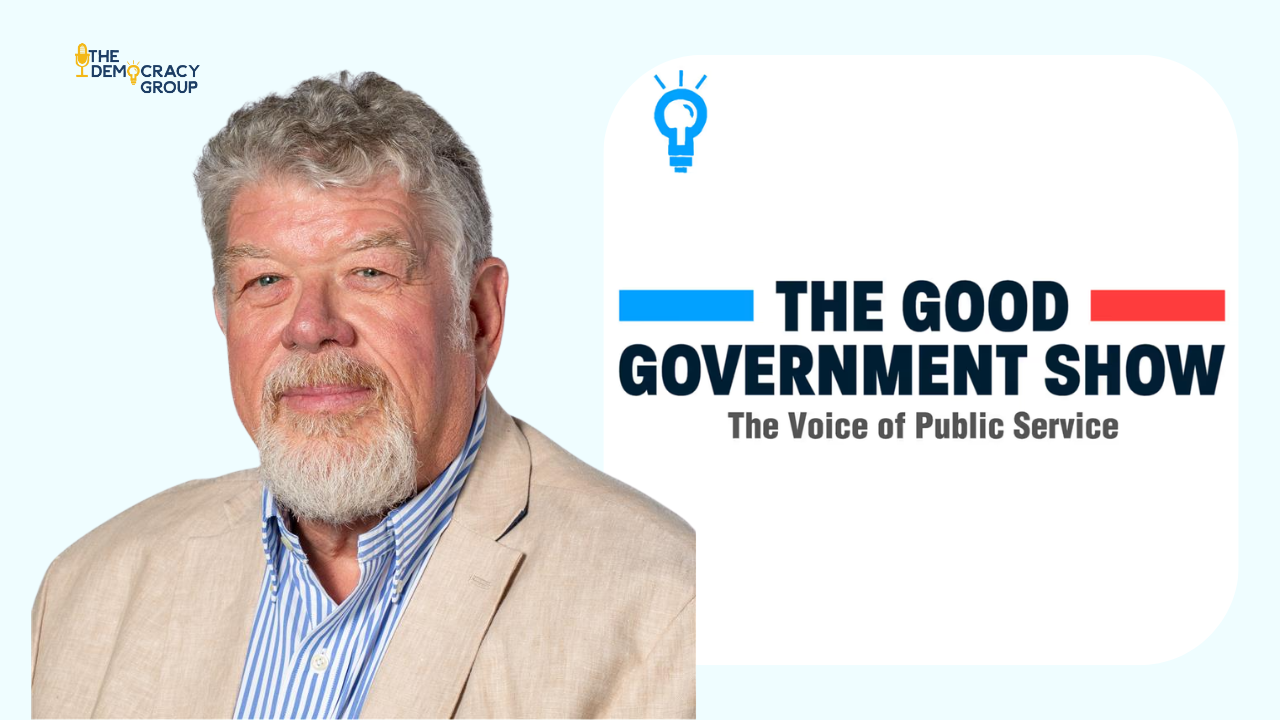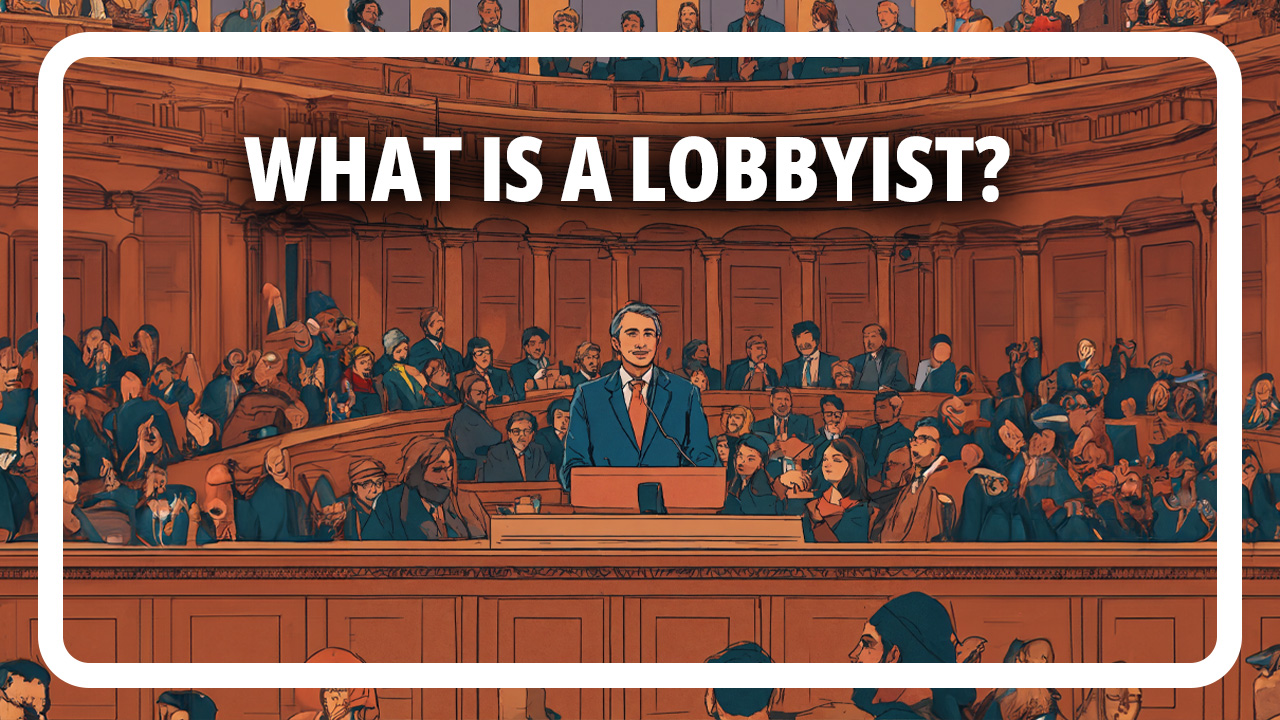
For the latest in our series on organizations that inspire us to take action to build a stronger democracy, Democracy Group community manager Jessie Nguyen caught up with On Our Minds: Election 2024 student reporters and special correspondents Maggie LeBeau, Simran Gupta, Grace Go and Carlos Guo. On Our Minds is an award-winning podcast about teen life, well-being, and mental health from PBS News Student Reporting Labs (SRL), a youth journalism training program.
On Our Minds: Election 2024 is a special season focused on youth perspectives on the 2024 election.
Q: What inspired you to join On Our Minds: Election 2024?
Simran: I've always had a fascination with government and politics. It’s largely because of my parents. When I was young, they instilled in me that it's really important to follow along with what's going on in your country and in the world because doing otherwise puts you in a bubble where you're not able to connect, empathize or make an impact in other people's lives. When I saw this opportunity to not only work in education in my local area but to do it on a national scale with other passionate students, I thought that was really cool and I wanted to be involved.
Maggie: I was a fellow in the Student Reporting Labs’ 2023 Winter Academy. Through those connections, I found out about On Our Minds’ Election 2024 and I applied for that. It interested me so much that there are so many people from across the country working on this podcast and using local stories to help cover the election and educate young people about what's going on in our country. It made me super excited for this opportunity.
Q: Being a part of Gen Z, what concerns do you hear about this election specifically coming from young people? Do you have plans to tackle those concerns?
Simran: A big issue especially for young voters is that a lot of politics tends to be dressed up, complicated and convoluted sometimes. That can make it hard for the average person who wants to know what's going on to get involved and make a difference. One of the biggest things that we're trying to do as part of the election season is to demystify the entire process and make it accessible to not just young voters but also all age groups so that they feel like they can also follow along and that if they want, they can also pitch in their own voice and give their two cents on what's going on.
Grace: I think social media is so powerful, but it can also be very dangerous — it can either complicate things or simplify things a little bit too much. My biggest concern is that teenagers aren't going to be as interested in taking the next step to do their research because it's easy to get everything from social media. I think the best thing that I can do as someone who is a teenager and has sometimes fallen victim to getting my information from social media and not doing my own research, I can make it easier for teenagers to find the right new sources, but it's up to my generation to want to take that extra step.
Q: What skills or experiences outside of school have the Student Reporting Labs provided you with?
Maggie: A great thing about the Student Reporting Labs is that they give you opportunities to grow in different mediums of journalism. For example, this podcast is very audio-focused but through that process, you have to interview people, write scripts and promote the podcast. I think that SRL is a great way for journalists who might come in with one skill, like video editing, and grow in so many other different aspects of journalism, which I think is really awesome.
Carlos: I'm working on a piece about the Electoral College and the future of the Electoral College — what could happen with the National Popular Vote Interstate Compact (NPVIC). The NPVIC is an agreement among the states that says if they get past 270 electoral votes then the winner of the popular vote will win the election. I think a lot of people don't understand how close we are to that. We only need 60-something electoral votes, which could happen soon. I found it interesting because the electoral college is so central to what happens and it decides who becomes president. It interested me because of how important it is. Being involved in the SRL program has helped me wise up to everything that's happening in our government that I wasn't particularly aware of before.

We’re thrilled to see our former fellows, Simran Gupta and Maggie LeBeau, thriving and sharpening their reporting skills in the latest On Our Minds: Election 2024 season with the Student Reporting Labs. On the topic of fellowship, we’re excited to announce that applications for the Fall 2024 cohort of the Podcast Fellowship are now open!
📍 Applications are due on September 6. Click here to apply or to learn more about the fellowship.
Subscribe to receive a biweekly collection of the hottest podcast episodes from the network, upcoming special events, expert features, and news from your favorite shows.
Subscribe to our NewsletterThis is Jessie Nguyen, The Democracy Group's Community Manager. Here are some of my favorite podcasts this week, check them out!

Why do we have an ongoing voter registration deficit? How do we fix it?
Civitech CEO and Co-Founder Jeremy Smith joins the show to discuss RunningMate, a product that looks at past data for strategic planning in political campaigns and addresses prominent problems voters face.

Social psychologist and author Jonathan Haidt joins host Corey Nathan to discuss his newly released book "The Anxious Generation: How the Great Rewiring of Childhood Is Causing an Epidemic of Mental Illness." Haidt offers arguments on one of his interesting points of view: we're overprotecting children from the real world yet underprotecting them from the digital world.

This episode takes a look at the history of primaries as well as how and when our political system began using primary elections to select a party’s candidates for office. I thought it was super interesting to hear about politics from a historical point of view!

Bryan Garsten is a professor of political science and the humanities at the Yale University Department of Political Science. He is the author of "Saving Persuasion: A Defense of Rhetoric and Judgment." In 2016 Garsten founded the Citizens, Thinkers, Writers program for students in the New Haven public schools. He currently is a member of the Harvard Higher Education Leaders Forum.

Barbara McQuade is a legal analyst for NBC News and MSNBC and a co-host of the podcast #SistersInLaw. McQuade is a professor of practice at the University of Michigan Law School where she teaches courses in criminal law, criminal procedure, national security, and data privacy. From 2010 to 2017, McQuade served as the US attorney for the Eastern District of Michigan. Appointed by President Barack Obama, she was the first woman to serve in her position.
Subscribe to receive a biweekly collection of the hottest podcast episodes from the network, upcoming special events, expert features, and news from your favorite shows.
Subscribe to our Newsletter
Host Dave Martin talks about “good government” stories, why they’re absent from mainstream media and what the show has planned for 2026.
Read Post
What is a lobbyist—and how does lobbying really work? Explore direct, indirect, and shadow lobbying through real-world examples to understand how power, money, and citizen action shape public policy in American democracy.
Read Post.png)
We kickstart the year with the exciting release of our fall 2025 fellows' podcasts and their inaugural episodes!
Read Post